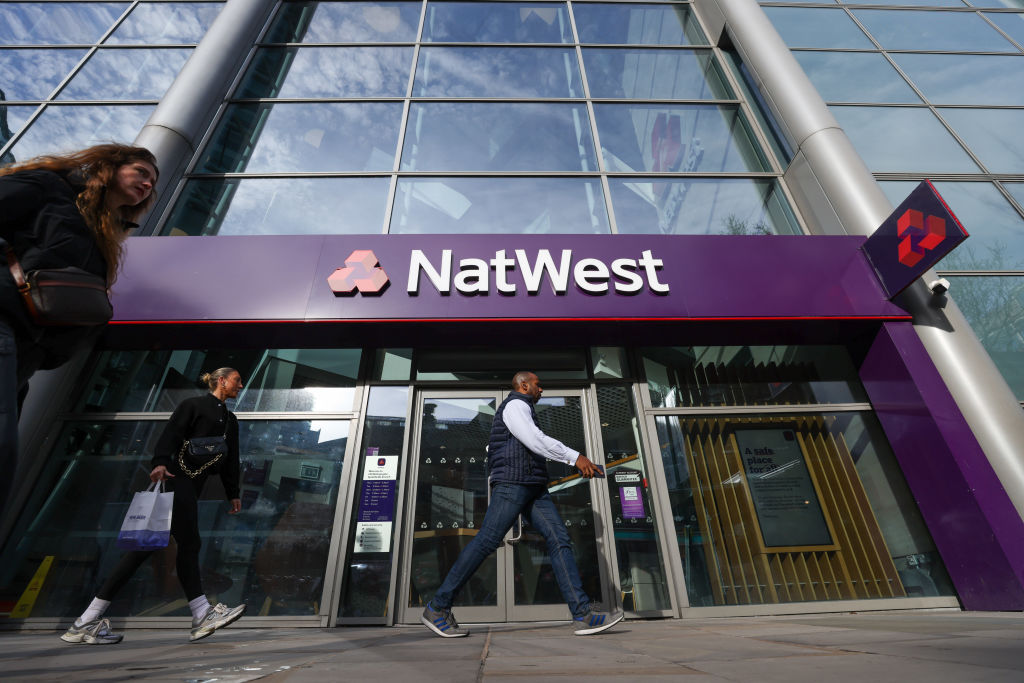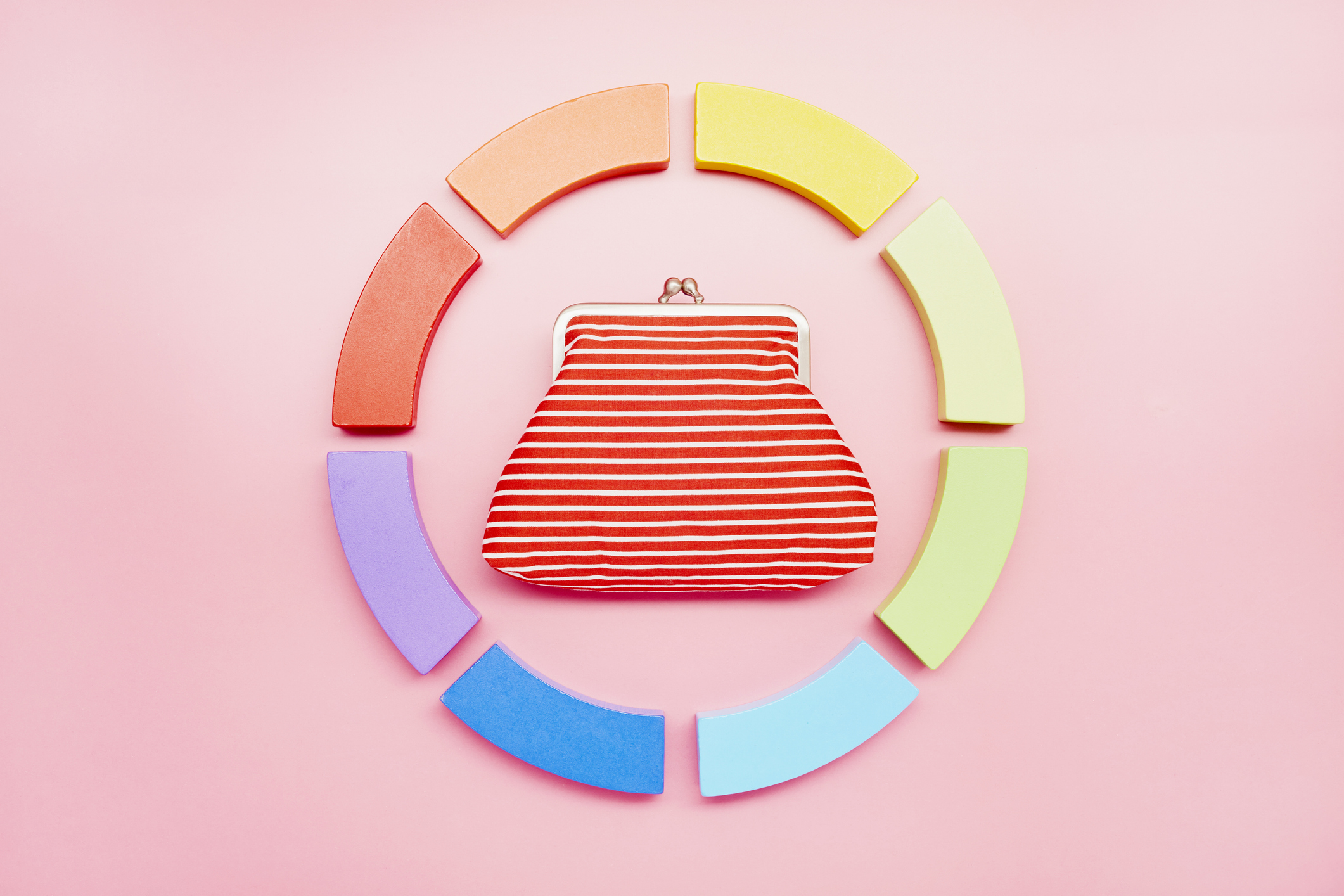Credit card providers slash 0% balance transfer deals
Customers face a double whammy of record-high APRs and shorter 0% balance transfer periods. We look at what’s going on in the credit card market


Get the latest financial news, insights and expert analysis from our award-winning MoneyWeek team, to help you understand what really matters when it comes to your finances.
You are now subscribed
Your newsletter sign-up was successful
Want to add more newsletters?

Twice daily
MoneyWeek
Get the latest financial news, insights and expert analysis from our award-winning MoneyWeek team, to help you understand what really matters when it comes to your finances.

Four times a week
Look After My Bills
Sign up to our free money-saving newsletter, filled with the latest news and expert advice to help you find the best tips and deals for managing your bills. Start saving today!
Credit card customers are being hit with record-high APRs and shorter 0% balance transfer deals.
Tesco Bank recently reduced its market-leading 0% balance transfer offer from 29 months down to 27 months. Last month, Virgin Money cut its 28-month 0% balance transfer deal to 26 months.
It means the longest balance transfer card is now Barclaycard (28 months), according to Moneyfacts. A year ago, the best deal was 30 months.
MoneyWeek
Subscribe to MoneyWeek today and get your first six magazine issues absolutely FREE

Sign up to Money Morning
Don't miss the latest investment and personal finances news, market analysis, plus money-saving tips with our free twice-daily newsletter
Don't miss the latest investment and personal finances news, market analysis, plus money-saving tips with our free twice-daily newsletter
"Interest-free offers have unfortunately worsened in terms of the time given to borrowers to pay back their debt before interest applies," comments Rachel Springall, finance expert at Moneyfactscompare.co.uk.
The average balance transfer deal for someone trying to consolidate their credit card debt is 17 months, down from 20 months two years ago.
Meanwhile, the average purchase APR (annual percentage rate) on a credit card is at a record high of 35.6%.
This is despite interest rates being lowered at the start of the month - the first cut since 2020. The Bank of England base rate is now at 5%.
Oliver Crawford from the consumer group Fairer Finance notes: “We always encourage borrowers to repay their transferred debt entirely during the 0% period, otherwise they'll face a much higher APR.”
Fairer Finance is calling on credit card providers to improve their communications so customers understand exactly how balance transfer cards work, and don’t get caught out by small print. For example, by making it as clear as possible that customers can potentially lose their 0% period entirely if they miss a repayment.
According to the consumer group, providers should also do more to explain that 0% balance transfer cards generally aren't suitable for making purchases or cash withdrawals, because that spending will usually accrue interest until the entire balance transfer is cleared.
Should I use a 0% balance transfer credit card?
An interest-free balance transfer card can be a useful way to slash the cost of existing credit card debt. It can save you hundreds of pounds in interest payments - but you must try and repay all the money you owe before the 0% period finishes, or you’ll get stung by a high interest rate.
According to Springall, parents who have spent too much in the school holidays may be looking to shift credit card debt onto a 0% deal, while others may have maxed out their credit cards on home improvements during the summer.
Note that the maximum 0% offer is not available to everyone; so some borrowers will get the highest amount (say 25 months), while others will get less.
You should also watch out for the balance transfer fee, and any other charges and small print.
And always avoid spending on it, or withdrawing cash. (If you’re looking for an interest-free credit card for spending, check out our round-up of the best 0% credit card deals for purchases.)
Springall comments: "Consumers looking to consolidate their credit card debts would typically turn to a 0% balance transfer offer, particularly when their existing debt is incurring interest at a high rate.
"Those who do use these deals will usually have to pay a balance transfer fee, so it’s wise to keep this in mind if debts are going to be moved around often over the short term. Some of the longest interest-free balance transfer offers carry higher transfer fees, but there are still some fee-free offers for borrowers to consider instead."
Where can I find the best rates right now?
The longest balance transfer deal is currently the Barclaycard Platinum 28-Month Balance Transfer Visa. At the end of the 28 months, the interest rate jumps to 24.9% APR.
The deal also comes with a chunky 3.45% balance transfer fee, which is higher than most; balance transfer fees are often less than 3%.
Here are the longest balance transfer cards on the market right now, according to Moneyfacts.
Card | 0% period | APR after 0% period | Transfer fee |
|---|---|---|---|
Barclaycard Platinum 28 Month Balance Transfer Visa | Up to 28 months | 24.9% | 3.45% |
Halifax Longest 0% Balance Transfer Credit Card Mastercard | Up to 27 months | 24.9% | 3.49% |
HSBC Balance Transfer Credit Card Visa | Up to 27 months | 23.9% | 2.99% |
Lloyds BankPlatinum 0% Balance Transfer Credit Card Mastercard | Up to 27 months | 24.9% | 3.2% |
It’s important to know that you may not get the full duration of the 0% offer, as this will depend on your credit rating. To see what you could get, use an eligibility checker, like the one on our sister site GoCompare to see what balance transfer card you can get.
If you’re looking for a no-fee balance transfer credit card, check our 0% balance transfer cards best buy guide to see the top rates on the market.
Get the latest financial news, insights and expert analysis from our award-winning MoneyWeek team, to help you understand what really matters when it comes to your finances.

Ruth is an award-winning financial journalist with more than 15 years' experience of working on national newspapers, websites and specialist magazines.
She is passionate about helping people feel more confident about their finances. She was previously editor of Times Money Mentor, and prior to that was deputy Money editor at The Sunday Times.
A multi-award winning journalist, Ruth started her career on a pensions magazine at the FT Group, and has also worked at Money Observer and Money Advice Service.
Outside of work, she is a mum to two young children, while also serving as a magistrate and an NHS volunteer.
-
 Should you buy an active ETF?
Should you buy an active ETF?ETFs are often mischaracterised as passive products, but they can be a convenient way to add active management to your portfolio
-
 Power up your pension before 5 April – easy ways to save before the tax year end
Power up your pension before 5 April – easy ways to save before the tax year endWith the end of the tax year looming, pension savers currently have a window to review and maximise what’s going into their retirement funds – we look at how
-
 Nationwide promises to protect all its branches from closures until at least 2030
Nationwide promises to protect all its branches from closures until at least 2030The building society has extended its pledge to keep all high street Nationwide and Virgin Money branches open, now until at least 2030.
-
 Thousands of Brits switch to Nationwide, Monzo and NatWest – which banks are least popular?
Thousands of Brits switch to Nationwide, Monzo and NatWest – which banks are least popular?We look at the most and least popular banks and building societies as current account bank switches reach a record high. Is it worth moving your money?
-
 NatWest sell-off moves closer as the government offloads more shares
NatWest sell-off moves closer as the government offloads more sharesThe UK Treasury's stake in NatWest has fallen to below 11% - here is what it means for the share price
-
 NatWest online banking and mobile app 'running again' after outage
NatWest online banking and mobile app 'running again' after outageBreaking NatWest's online banking and mobile app went down this morning, affecting as many as 10 million users.
-
 Best and worst UK banks revealed
Best and worst UK banks revealedWe reveal the best UK banks – and the worst – when it comes to managing your money and good customer service. How does your provider compare?
-
 iPhone users can now check bank balance from Apple Wallet
iPhone users can now check bank balance from Apple WalletNew tool aims to make it easier for smartphone users to track bank balance and spending
-
 Barclays launches £175 switching deal - plus earn 5.12% interest on cash
Barclays launches £175 switching deal - plus earn 5.12% interest on cashBarclays launches £175 switch bonus, which also gives you access to 5.12% easy access savings. We have all the details
-
 Act now to bag NatWest-owned Ulster Bank's 5.2% easy access savings account
Act now to bag NatWest-owned Ulster Bank's 5.2% easy access savings accountUlster Bank is offering savers the chance to earn 5.2% on their cash savings, but you need to act fast as easy access rates are falling. We have all the details